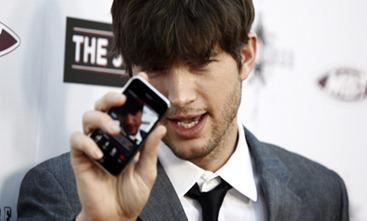 Most startups dream of attracting a celebrity endorsement, and assume that it will take their startup to the stars. There have been some “famous” recent successes in this regard, such as Charlie Sheen using Twitter to promote Internships.com, as well as some failures, including MyFavorites.com using celebrities to promote the books they are reading.
Most startups dream of attracting a celebrity endorsement, and assume that it will take their startup to the stars. There have been some “famous” recent successes in this regard, such as Charlie Sheen using Twitter to promote Internships.com, as well as some failures, including MyFavorites.com using celebrities to promote the books they are reading.
Startups using celebrities is such a hot topic these days that Gary Vaynerchuck, noted author and entrepreneur, has coined a new term “star-ups” for the phenomenon. New books are popping up on the subject of how and when to seek celebrity endorsements, including one I just finished, “Will Work for Shoes,” by Susan J. Ashbrook, who has courted celebrities for twenty years.
She helps you decide if celebrity endorsement is a viable and reasonable alternative for your business, and how do you go about selecting and approaching the right celebrity. Following is a summary of the challenges that Susan and other “experts” have outlined:
-
Finding a match between your offering and a celebrity. That means finding the perfect person for your brand. Their values need to match your brand image, including the perception of quality, educational value, as well as recognition by your target demographic. Be sure the celebrity really believes in your product.
If you are selling to young consumers, Miley Cyrus or Justin Bieber may be high on your list. For technology products, even well-recognized investors, such as John Doerr or Ron Conway, are seen as celebrities, and startups supported by these players are automatically elevated to a new level of credibility.
-
Funding the relationship. Celebrity endorsements don’t come cheap. Does your marketing budget allow you to roll out the red carpet to meet celebrity lifestyles, including the investment in appearances, videos, and perks? Big fat advance checks and long-term royalties are often the norm.
On the other hand, maybe you can emulate Priceline.com, whose official spokesperson, William Shatner, agreed to do the spots for free in exchange for stock in the company. The arrangement turned out to be quite profitable for Shatner, who has since made approximately $600 million from Priceline.com, despite the dot.com bust.
-
How to find and connect with the celebrity you want. As with all aspects of business relationships, funding, and partners, nothing beats a pre-existing relationship, or at least a warm introduction. Beyond that, the place to start is with publicists, agents, and other handlers. Major groups include Rogers & Cowan, Baker/Winokur/Ryder, and 42West.
One of the inside secrets of finding and meeting the right people is working with charities. Celebrities have a passion for giving, and they respect people and companies who share their passion.
-
Potential for celebrities funding you. More and more celebrities are jumping on the entrepreneurship wagon. For example, Ashton Kutcher not only has the most Twitter followers of any “entrepreneur” (8 million), but he has actively invested in several startups. For example, he has helped Foursquare raise over $21 million to date.
-
Make the endorsement part of a bigger campaign. Building a brand and a successful company is a lot bigger than just getting a celebrity endorsement. The endorsement relies on a major marketing campaign to get the message out and setting the context for a successful delivery on the promises implied.
-
Prepare to handle endorsement success. Customers are a fickle bunch. You must be ready with the right array of retail partners, manufacturing, and distribution arrangements before the demand hits. Marketing momentum fades fast in the face of disgruntled potential customers and long waits in line.

